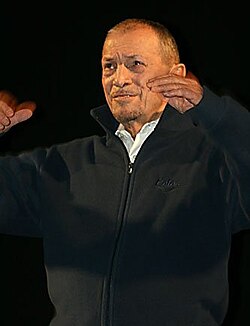Career
He began his professional stage career as a founding member of Milan's Compagnia dei Giovani, under the direction of Giorgio De Lullo and Romolo Valli. He performed with the Paolo Stoppa and Rina Morelli's company in a 1960 production of L'Arialda, directed by Luchino Visconti, and achieved critical praise for his performance as 'Nick' in a production of Who's Afraid of Virginia Woolf? , opposite Enrico Maria Salerno. He performed extensively with Gabriele Lavia for the Teatro Eliseo, of which he was the artistic director between 1980 and 1997.
After a minor role in Federico Fellini's La Dolce Vita , Orsini made his official film debut in the 1960 film Love in Rome . After several supporting roles, including in the star-studded international production Candy, Orsini made his breakthrough in Visconti's The Damned, playing a disillusioned industrialist in 1930s Germany whose anti-Nazi views leave him a target of the new regime. The role earned Orsini praise from Italian critics, and he won that year's Nastro d'Argento for Best Supporting Actor.
He would collaborate again with Visconti in the 1973 historical epic Ludwig, which also reunited him with Damned co-stars Helmut Berger and Helmut Griem. Outside his native Italy, Orsini also worked in French cinema, notably playing the husband of the title character in Emmanuelle 2 and Goodbye Emmanuelle .
Orsini found success on Italian television, becoming a regular fixture of RAI programming. He co-hosted the Sunday morning cooking show Colazione allo studio 7 with Luigi Veronelli.
This page is based on this
Wikipedia article Text is available under the
CC BY-SA 4.0 license; additional terms may apply.
Images, videos and audio are available under their respective licenses.
